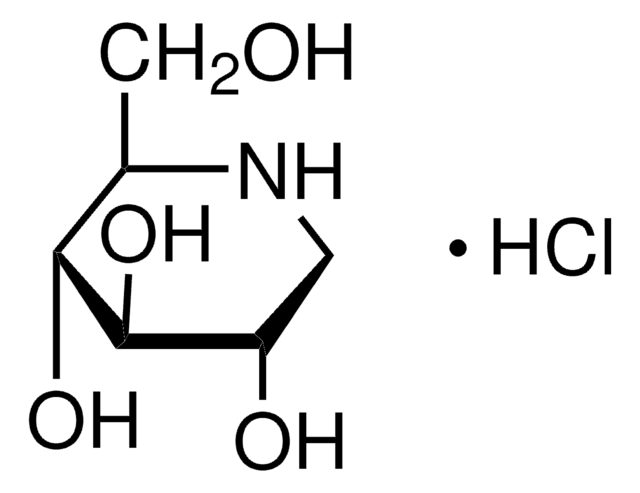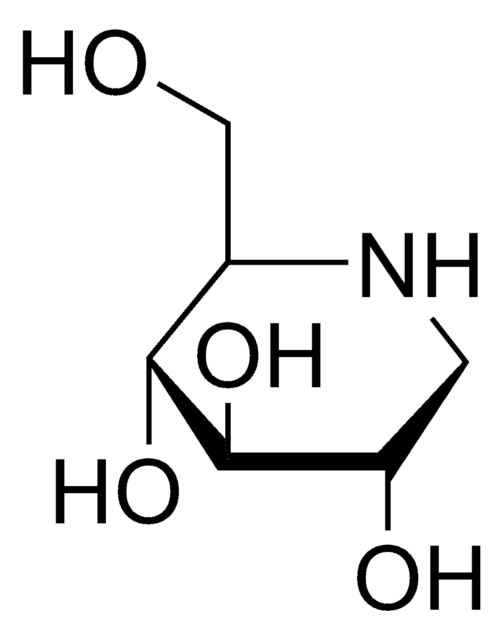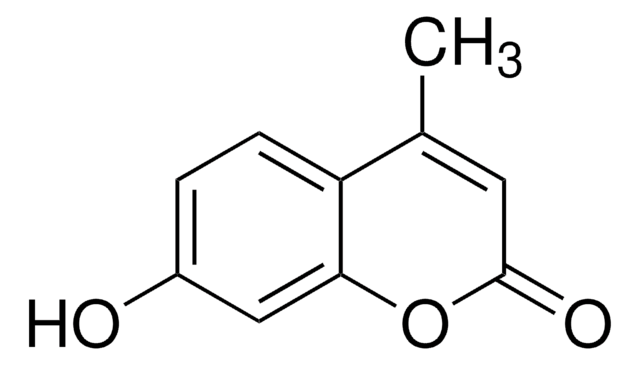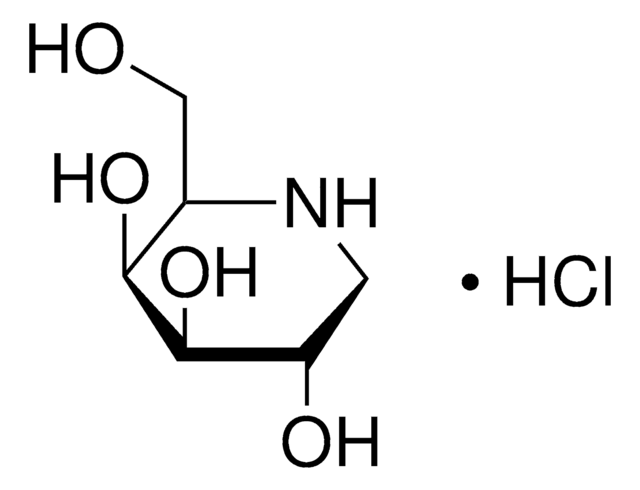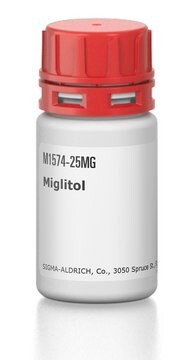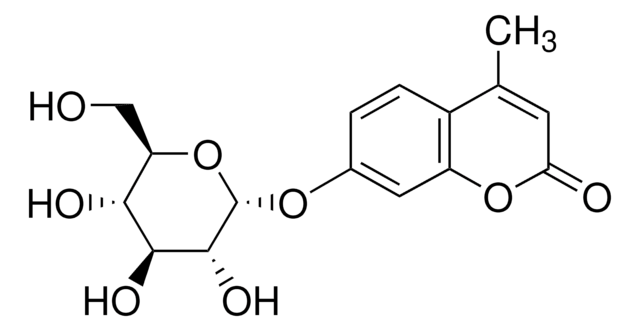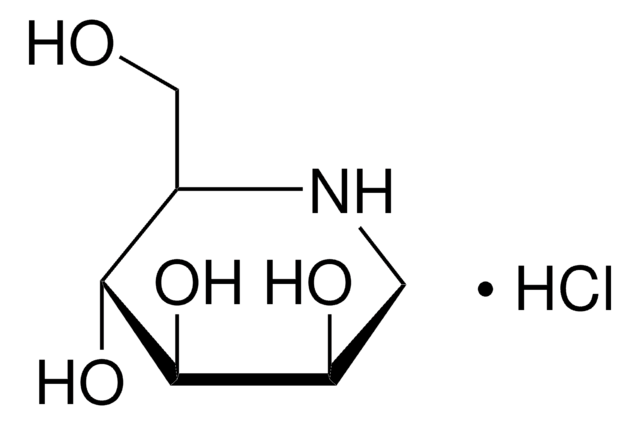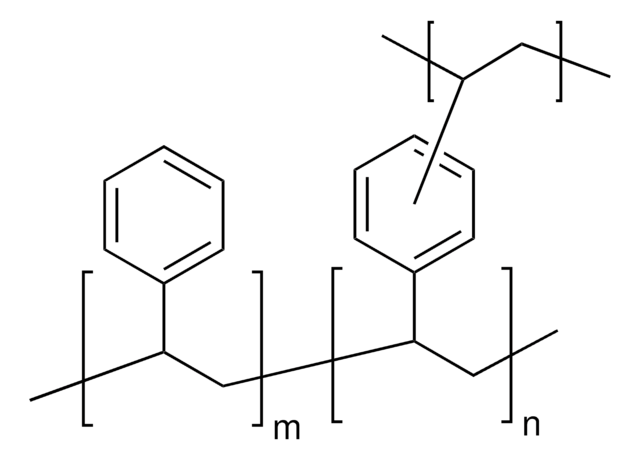B8299
N-Butyldeoxynojirimycin
film (dried in situ), ≥98% (TLC)
Synonym(s):
Miglustat, NB-DNJ
About This Item
Recommended Products
product name
N-Butyldeoxynojirimycin, film (dried in situ)
Assay
≥98% (TLC)
Quality Level
form
film (dried in situ)
solubility
water: 9.80-10.20 mg/mL, clear, colorless
storage temp.
2-8°C
SMILES string
CCCCN1C[C@H](O)[C@@H](O)[C@H](O)[C@H]1CO
InChI
1S/C10H21NO4/c1-2-3-4-11-5-8(13)10(15)9(14)7(11)6-12/h7-10,12-15H,2-6H2,1H3/t7-,8+,9-,10-/m1/s1
InChI key
UQRORFVVSGFNRO-UTINFBMNSA-N
Gene Information
human ... UGCG(7357)
Related Categories
General description
Application
- in the inhibition of glycolipid synthesis in neuroblastoma cells
- in the inhibition the ceramide-specific glycosyltransferase in hepatocytes
- in the inhibition of β-glucosidase (GBA2) using fluorescence- activity assay in human embryonic kidney (HEK293) cells.
Biochem/physiol Actions
Storage Class Code
11 - Combustible Solids
WGK
WGK 3
Flash Point(F)
Not applicable
Flash Point(C)
Not applicable
Personal Protective Equipment
Certificates of Analysis (COA)
Search for Certificates of Analysis (COA) by entering the products Lot/Batch Number. Lot and Batch Numbers can be found on a product’s label following the words ‘Lot’ or ‘Batch’.
Already Own This Product?
Find documentation for the products that you have recently purchased in the Document Library.
Customers Also Viewed
Our team of scientists has experience in all areas of research including Life Science, Material Science, Chemical Synthesis, Chromatography, Analytical and many others.
Contact Technical Service